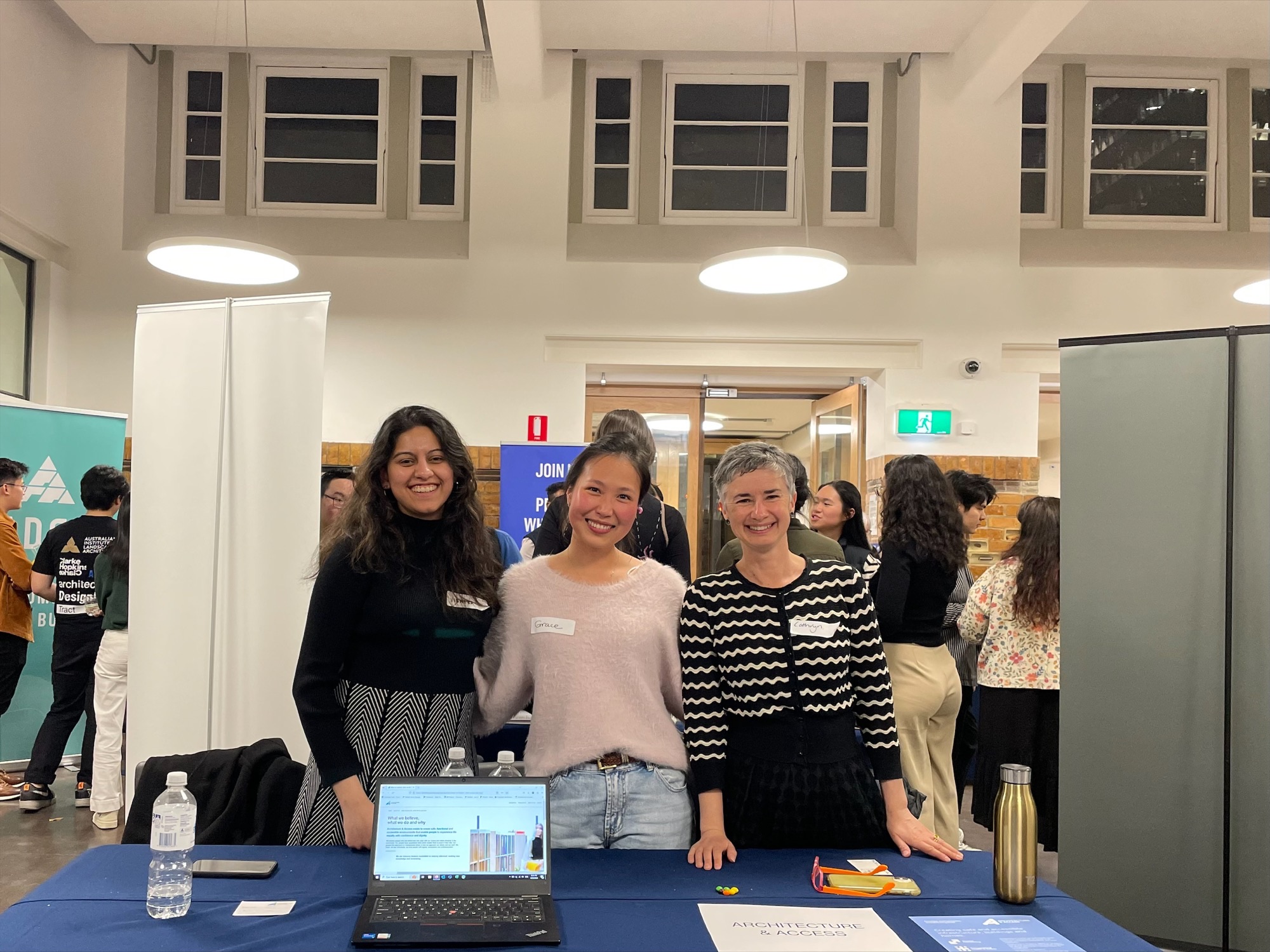University of Melbourne hosted this event, where a diverse group of multidisciplinary students from various fields gather to delve into the realm of inclusive design
The student society of the Melbourne School of Design invited Architecture & Access to be an industry partner for the Universal Design Sprint (UDS) event. The UDS is a competition that aims to bring together students in a design challenge to create real, working solutions to problems with accessibility, over the course of a weekend. Going beyond a traditional tech hackathon, the UDS was more inclusive of different disciplines which can inform innovation in software, hardware, design and policy to create a more equitable society.
The presentation addressed the pressing need to rethink and reshape our urban landscapes and architectural structures to accommodate diverse demographics. The audience, comprised of students spanning Health, Design, Architecture, Urban Design, Engineering, and Information Technology, was treated to an eye-opening discussion on the future of inclusive design.
Specifically tailored for the future design of spaces, the presentation focused on catering to the needs of the aging population, individuals with disabilities, children, infants, and those with sensory and cognitive impairments. A wide array of topics was covered, ranging from the incorporation of sensory rooms to the complex balance required in preserving heritage overlayed buildings.
The discussion delved into various practical aspects, touching on design elements such as audio and braille tactile wayfinding maps, strategic placement of loose furnishings in outdoor spaces, and innovative seating options. A particularly poignant segment centred around safety concerns in the design of outdoor auditoriums and tiered seating, emphasising the integration of features like stairs, handrails, tactiles, and wheelchair seating clearance. Of significant note was the exploration of digital directory signage and its potential challenges for individuals with low vision or vision impairments. The presentation highlighted the distinctions of incorporating such technology while maintaining inclusivity.
We highlighted the important role of seemingly mundane elements like bike racks, bins, light poles, and planting in influencing people’s ability to navigate independently and safely. The emphasis on considering these seemingly trivial yet impactful aspects during the early planning phases of construction projects was strongly requested of the architecture, engineering, and design industries.
The core message resonating throughout the presentation was the need for a shift in the industry’s approach—a call to action for proactive consideration of inclusivity and accessibility in the initial designs of buildings and landscapes. This foresight ensures that structures are not merely structures but welcoming spaces for all, fostering a truly inclusive society where everyone feels empowered and valued.
The UDS at the University of Melbourne was enriched by this thought-provoking presentation, igniting a dialogue and inspiring future designers to champion inclusivity in their creations.
